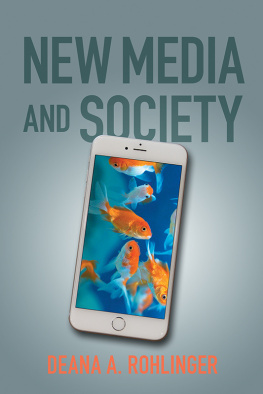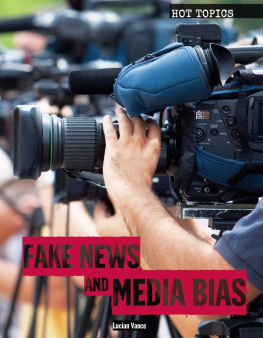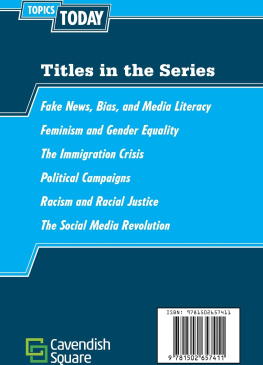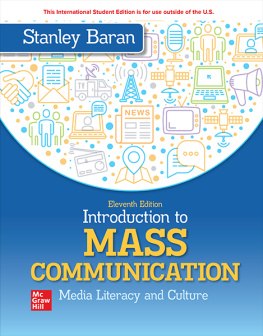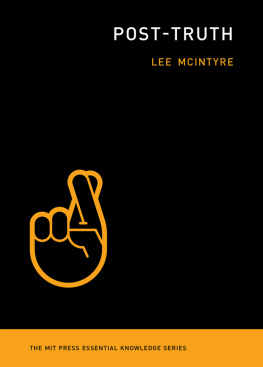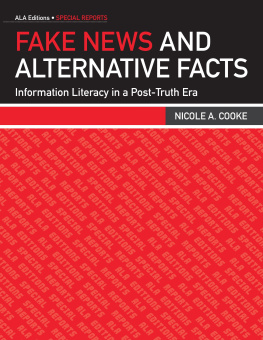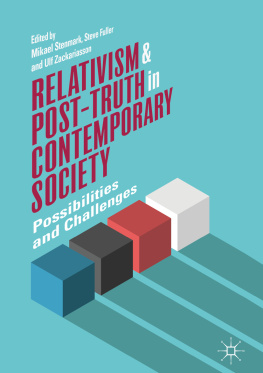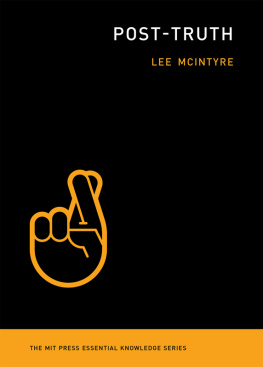Media, Technology and Education in a Post-Truth Society
Digital Activism and Society: Politics, Economy and Culture in Network Communication
The Digital Activism and Society: Politics, Economy and Culture in Network Communication series focuses on the political use of digital everyday-networked media by corporations, governments, international organizations (Digital Politics), as well as civil society actors, NGOs, activists, social movements and dissidents (Digital Activism) attempting to recruit, organise and fund their operations, through information communication technologies.
The series publishes books on theories and empirical case studies of digital politics and activism in the specific context of communication networks. Topics covered by the series include, but are not limited to:
- the different theoretical and analytical approaches of political communication in digital networks;
- studies of socio-political media movements and activism (and hacktivism);
- transformations of older topics such as inequality, gender, class, power, identity and group belonging;
- strengths and vulnerabilities of social networks.
Series Editor
Dr Athina Karatzogianni
About the Series Editor
Dr Athina Karatzogianni is an Associate Professor at the University of Leicester, UK. Her research focuses on the intersections between digital media theory and political economy, in order to study the use of digital technologies by new sociopolitical formations.
Published Books in this Series
Digital Materialism: Origins, Philosophies, Prospects by Baruch Gottlieb
Nirbhaya, New Media and Digital Gender Activism by Adrija Dey
Digital Life on Instagram: New Social Communication of Photography by Elisa Serafinelli
Internet Oligopoly: The Corporate Takeover of Our Digital World by Nikos Smyrnaios
Digital Activism and Cyberconflicts in Nigeria: Occupy Nigeria, Boko Haram and MEND by Shola A. Olabode
Platform Economics: Rhetoric and Reality in the Sharing Economy by Cristiano Codagnone
Communication as Gesture: Media(tion), Meaning, & Movement by Michael Schandorf
Forthcoming Titles
Chinese Social Media: Face, Sociality, and Civility by Shuhan Chen and Peter Lunt
Media, Technology and Education in a Post-Truth Society: From Fake News, Datafication and Mass Surveillance to the Death of Trust
EDITED BY
ALEX GRECH
The 3CL Foundation and the University of Malta, Malta
United Kingdom North America Japan India Malaysia China
Emerald Publishing Limited
Howard House, Wagon Lane, Bingley BD16 1WA, UK
First edition 2021
Editorial matter and selection copyright Alex Grech, 2021. Chapter 8, Fact to Fake: The Media World as It Was and Is Today copyright Michael Bugeja, 2021. Published by Emerald Publishing under an exclusive licence. Remaining chapters copyright Emerald Publishing Limited, 2021.
Reprints and permissions service
Contact:
No part of this book may be reproduced, stored in a retrieval system, transmitted in any form or by any means electronic, mechanical, photocopying, recording or otherwise without either the prior written permission of the publisher or a licence permitting restricted copying issued in the UK by The Copyright Licensing Agency and in the USA by The Copyright Clearance Center. Any opinions expressed in the chapters are those of the authors. Whilst Emerald makes every effort to ensure the quality and accuracy of its content, Emerald makes no representation implied or otherwise, as to the chapters' suitability and application and disclaims any warranties, express or implied, to their use.
British Library Cataloguing in Publication Data
A catalogue record for this book is available from the British Library
ISBN: 978-1-80043-907-8 (Print)
ISBN: 978-1-80043-906-1 (Online)
ISBN: 978-1-80043-908-5 (Epub)
For Liz and Jacob, who keep me sane in troubled times. Soon, we will find our way back to some hilltop town with a trattoria and a well-thumbed menu with no translation.
Contents
Alex Grech
John P. Portelli and Soudeh Oladi
Bryan Alexander
Harry Anthony Patrinos
Abeer Al-Najjar
Emma Pauncefort
Walter Fernando Balser, Steve Diasio and Taylor Kendal
Michael Bugeja
Hossein Derakhshan
Toni Sant
Ruben Brave
Massimiliano Fusari
Gor Mallia
Anna Topolska
Lina Zuluaga and Phillip D. Long
Devraj Basu and Murdoch Gabbay
Joshua Ellul, Alex Grech and Gordon J. Pace
Allan Third and John Domingue
Natalie Smolenski
Daniel Hughes
About the Contributors
Bryan Alexander is an internationally known Futurist, Researcher, Writer, Speaker, Consultant, and Teacher, working in the field of how technology transforms education. He is currently a Senior Scholar at Georgetown University and teaches graduate seminars in their Learning, Design and Technology program.
Abeer Al-Najjar is an Associate Professor of Media and Journalism Studies at the American University of Sharjah. She has published two books and several articles and chapters on media, gender and religion; media framing of political conflict and war; and journalistic ethics and practices.
Walter Fernando Balser is an Instructor in Organizational Leadership at the University of Denver and the University of South Florida. His scholarship focuses on applying leadership orientations and processes more aligned with rapid decentralization of knowledge in society. He is also the Founder of the Open Partnership Education Network.
Devraj Basu is a Senior Lecturer in Finance at Strathclyde Business School. He has researched equity markets, commodity markets, alternative investments, and fintech and data analytics as applied to markets, including projects on precision timing into blockchain clearing and on analyzing markets using topological data analysis.
Ruben Brave, Co-founder of Make Media Great Again, is a Dutch Internet Pioneer, Media Professional, and Technology, Media, and Telecom Entrepreneur with a focus on social entrepreneurship. Since 2004, he is the Founder of academic business incubator Entelligence.nl for funding and guidance regarding startups in media, automation, health, and lifelong learning.
Michael Bugeja, a distinguished Professor of Journalism and Communication at Iowa State University of Science and Technology, and is the author of Interpersonal Divide in the Age of the Machine (Oxford Univ. Press, 2018) and Living Media Ethics (Routledge/Taylor & Francis, 2019).
Steve Diasio


